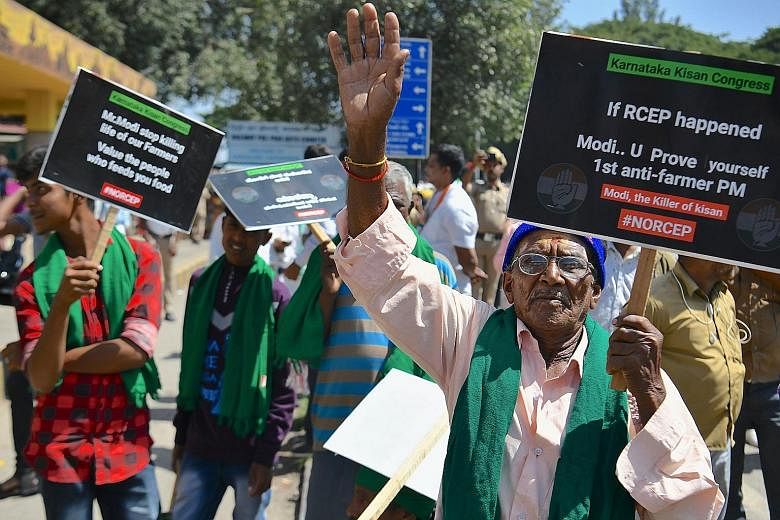Widespread criticism in India of the Regional Comprehensive Economic Partnership (RCEP), including from opposition political parties and groups affiliated to the ruling Bharatiya Janata Party (BJP), as well as an ongoing economic downturn in the country, played a key role in New Delhi's decision not to join the deal on Monday.
Prior to the final phase of negotiations, various industry and agricultural lobby groups in India vociferously expressed fears of a greater influx of Chinese products and a surge in imports of primary produce, including dairy, from RCEP member countries.
Already a subscriber? Log in
Read the full story and more at $9.90/month
Get exclusive reports and insights with more than 500 subscriber-only articles every month
ST One Digital
$9.90/month
No contract
ST app access on 1 mobile device
Unlock these benefits
All subscriber-only content on ST app and straitstimes.com
Easy access any time via ST app on 1 mobile device
E-paper with 2-week archive so you won't miss out on content that matters to you


